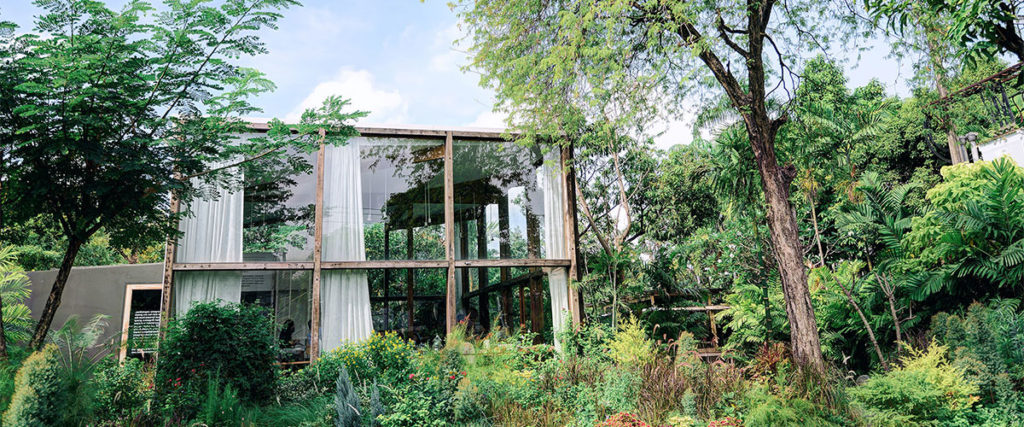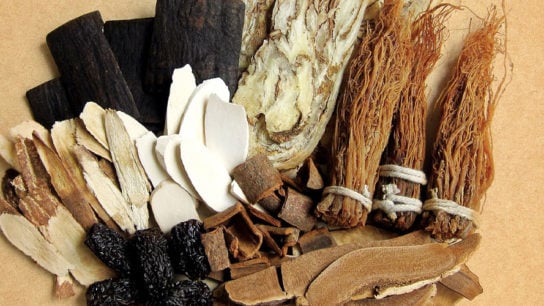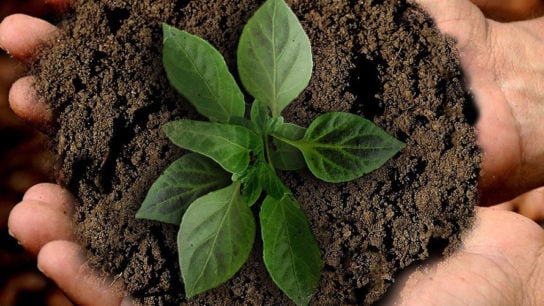Step inside Patom, Bangkok’s super stylish organic store and cafe in the city’s Thonglor Neighbourhood and an ode to the stylish and sustainable.
In the midst of Bangkok’s trendiest neighbourhood of Thonglor lies a beautiful piece of architecture crafted from glass and upcycled wood, dropped in the middle of a rich, green Thai garden. Inside this glass house sits Patom, a sleek and enchanting shop and cafe selling organic beauty products, Thai delicacies, drinks, desserts and goods – all sourced from organic farms.
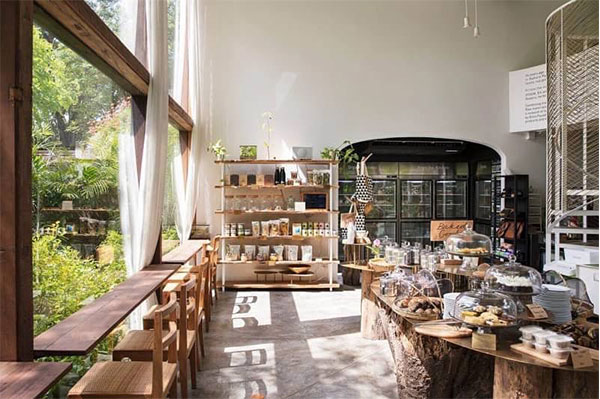
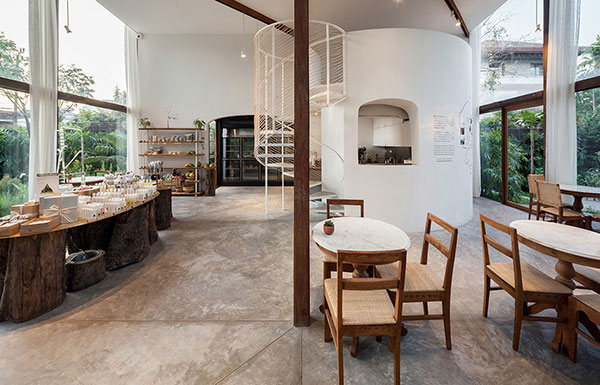
This supercool, organic hub has its roots in the land – specifically a piece by the Ta-Chine river in Nakhon Pathom province an hour’s drive from Bangkok, bought by its founders’ grandparents in 1962. Early adopters of the organic farming movement, they developed it into the Sampran Riverside, a well known eco-cultural destination still visited by many today. A hub of organic gardens, cultural workshops, traditional cuisine, eco-activities and organic farming research and support, the tourist hotspot has supported eco-tourism, local farmers and organic living for almost fifty years. Today, using raw fruits, vegetables herbs and plants free of pesticides and poisons, the haven has blossomed into a thriving NGO, the Sookjai Foundation, supporting over 150 families of organic farmers in Thailand through education and financial support. It is also where the Patom boutique and cafe sources their ingredients. “We’re trying to create an accessible lifestyle brand of organic living that won’t break the bank, whilst supporting the farmers who are the backbone of Thailand and remaining sustainable,” explains their employee Cat Lau.
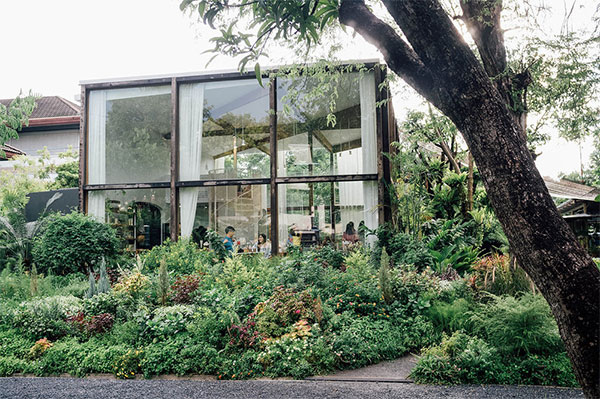
Patom’s slick design is the expert work of architects Nita Yuvaboon and Prow Puttorngu of design firm Nitaprow. Using reclaimed wood from the owner’s old houseboat, fallen tree trunks from the Sampran Riverside grounds and refurbished furniture, it’s equal parts style and soul. Hoping to educate their customers as well as fill their reusable bags with organic fare, the hotspot also houses a community garden where city goers grow organic produce and hold frequent workshops. “We want to show people how things are made,” says Cat. “We have done terrarium workshops and even recently held a workshop showing how to make an organic scrub out of guava. We want to show people how easy it is to make something pure and natural that can be used everyday.” Attracting design-junkees and hipsters from all over Asia thanks to its standout look, it’s a mission that comes packaged up in plenty of cool – and one they’re well on their way to completing.
